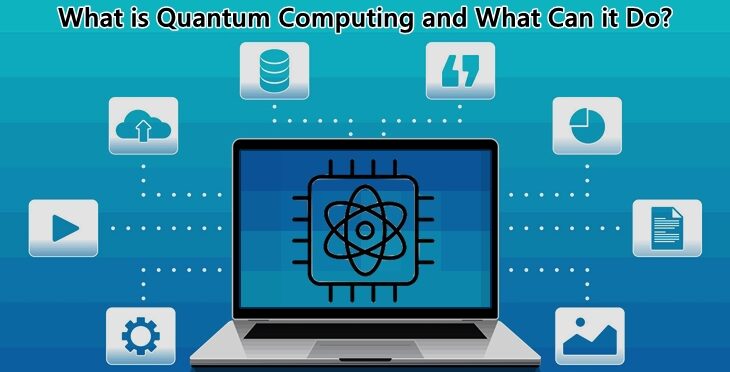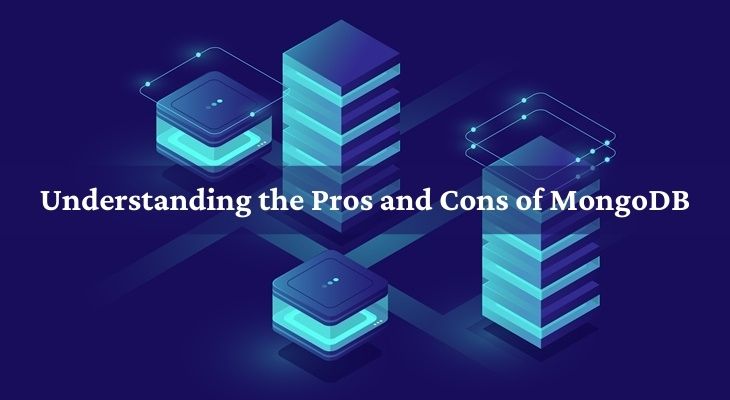What Is Quantum Computing?
Quantum computing is a branch of computer science. It is devoted to the advancement of computer technology. It is based on quantum theory's concepts. The Quantum theory concept explains the behavior of energy and material on the atomic and subatomic levels. Computers nowadays can only encode data in 1 or 0 bits, which limits their capabilities.
Quantum computing makes use of quantum bits (also known as qubits). It uses the unique capacity of subatomic particles to exist in several states.
How do Quantum Computers Work
Quantum computers are data storage and processing machines. They make use of quantum physics features. This can be beneficial for some tasks, where they can outperform even the most powerful supercomputers.
Traditional computers store data in binary "bits". These bits can be either 0s or 1s. A quantum bit, or qubit, is the fundamental memory unit in a quantum computer.
Physical systems are used to create qubits. These can be the spin of an electron or the direction of a photon, etc. These systems use a characteristic known as Quantum superposition. This characteristic allows the system to be in several configurations at one time. Quantum entanglement is a phenomenon that allows qubits to be inseparably linked. This results in a set of qubits representing many things at the same time.
A traditional computer can represent any number between 0 and 255 with eight bits. However, an eight-qubit quantum computer can represent all numbers between 0 and 255. More numbers could be represented by a few hundred entangled qubits than there are atoms in the universe.
This is where quantum computers outperform traditional computers. Quantum computers can consider a huge number of possible combinations at a time. Trying to identify the prime factors of a huge number or the best route between two points are two examples.
But, there may be some scenarios in which classical computers outperform quantum computers. As a result, future computers may be a hybrid of the two sorts.
Heat, electromagnetic forces, and collisions with air molecules can cause a qubit to lose its quantum qualities. Hence, quantum computers are currently very sensitive. Due to this, the system crashes. This is known as quantum decoherence. Quantum decoherence occurs more swiftly as the number of particles involved increases.
Qubits in quantum computers must be protected from external influence. This is done by keeping them physically isolated, kept cool, or zapped with controlled energy pulses. To remedy faults that seep into the system, more qubits are required.
Quantum Computing Applications in Various Fields
Cryptography
Advanced cryptography is the most prevalent application of quantum computing. Encryption that uses big prime number factorization (300+ integers) is impossible to break with today's machines. This decryption could become trivial with quantum computers. It would thus result in tighter protection of our digital lives and possessions. Of course, we'll be able to crack standard encryption more quickly as well.
Aviation
Quantum technology has the potential to enable more complicated computer simulations. A good example would be computer simulations used in aeronautical scenarios. Time and cost savings associated with routing and scheduling of airplanes are huge. Large corporations such as Airbus and Lockheed Martin are exploring and investing in this space. They want to make use of the technology's computing power and optimization possibilities.
Data Analytics
Quantum mechanics and quantum computing have the potential to address massive problems. Due to the data set employed, topological analysis, a branch of study where geometric objects act in specified ways, explains calculations that are unachievable with today's standard computers. This can be reduced to basic calculations using quantum computing.
NASA is considering utilizing quantum computing. Quantum computing can be used to analyze the massive amounts of data it collects about the universe. Quantum computing will also help to develop better and safer space travel ways.
Forecasting
Large and complicated data sets are required for predicting and forecasting diverse scenarios. Weather modeling has a limit on the number of inputs that get handled by traditional computation. If you include too many variables, the simulation will take longer to complete than the actual weather.
Weather affects over 30% of the US GDP in some form. Thus being able to forecast it more precisely would be beneficial to the economy.
Finding Data Patterns
Finding patterns in data and applying them to forecast future patterns is beneficial. Volkswagen is investigating how to use quantum computing to notify drivers of traffic conditions ahead of time. Quantum computers will make it possible to match traffic patterns. Quantum computing can forecast the behavior of a complicated system as of today's traffic.
Medical Research
There are a billion ways something could react across the human body. This number grows when that could be a medicine given to billions of people, each with minor variances in their genetic makeup.
It takes up to ten years and billions of dollars for a pharmaceutical company to find and bring a new drug to market. Quantum computing can reduce costs and time to market. It can make it easier to reuse pre-approved medications for new uses. Quantum computing will empower computational chemists to generate discoveries faster. Quantum computing will lead to solutions for a variety of ailments.
Self-Driving Cars
Automobile manufacturers such as Tesla and technology giants such as Apple and Google are working on self-driving vehicles. This will raise the living standards. It will also reduce pollution, reduce traffic, and provide a slew of other advantages.
Google and Volkswagen are developing battery, transportation, and self-driving tech using quantum computers. With quantum computing, Volkswagen has already improved traffic flow for 10,000 taxis in Beijing and is on the verge of making many more changes.
Conclusion
Quantum computers are powerful and quick. They can complete calculations that would take decades on today's supercomputers. Quantum supremacy is a term used by scientists to describe this phenomenon. While quantum computing already impacts the domains indicated above, this list is far from complete. As with any new technology, as hardware evolves and new opportunities emerge, new applications will emerge that are currently unthinkable.
You may like to read:
Exascale Computing Vs. Quantum Computing: Difference Explained
Cryptocurrency Aave: How It Works, Its Features And Advantages
What is Quantum Computing and What Can it Do?
What Will Be The Effect Of Quantum Computing On Blockchain?





